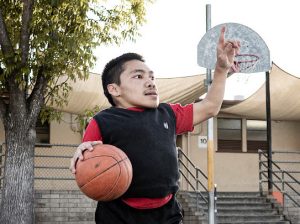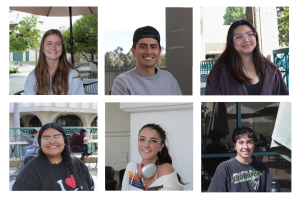Different countries, states, counties and cities take different approaches to tackling the issue of homelessness. Here in San Diego, the city provides a Homeless Outreach team and a Psychiatric Emergency Response Team aimed at assisting those with chronic illnesses, and providing them with the resources they need to transition into life off of the streets.
In Oxford, England, they’re trying things a little differently with an app called, “Greater change.” This app is currently undergoing a trial run, and if implemented, it could change the way areas across the entire nation address homelessness.
I thought this approach to homelessness was a rather intriguing ide, especially considering the fact that if the trial ends successfully, it could be something a city like San Diego, with rampant homelessness, ends up adopting.
According to the San Diego Union-Tribune, San Diego has the nation’s fourth homeless population of any region in the nation. And this serves as no surprise.Whenever I go out to the city, I am bound to see homeless people sitting on sidewalks or sleeping in alleys.
For this reason, I decided to research the app, analyze its implications and fuel a conversation about what this sort of system would mean for San Diego if implemented.
The Greater Change app assigns a homeless person a unique QR code, along with a support work who basically manages the homeless person, and their account. With this QR code, people can scan it with their phones and through their phones, use the code to send money to the homeless individual electronically.
Some of the code’s features include providing information about the homeless individual’s circumstances, information regarding their goals and ways they plan on using the money they receive through the app.
When I first read about this app, I didn’t see anything wrong with it. On the Greater Change website, they explain how the app will solve problems that donors and homeless people experience every day. Everything on the Greater Change website all sounds very altruistic, and I believe the creators have good intentions. However, there were many aspects of the app that I actively oppose and here’s why:
Homeless people are still people, not objects.
One of my biggest concerns with this app is that a person is labeled with a barcode as if they are an object. At first, I thought: our society is heading towards a more innovative and digitized future, it makes sense that an app should try to keep up with this progressive time. Yet, the more I thought about it, the more absurd it became. Reducing a person to nothing more than black and white squares is not only degrading, but also dehumanizing. I saw one comment about this app that labeled it it a “dystopian solution” and another that felt it signaled just how much “we are straying further away from humanity.” I think that there is a better way to approach the issue of homelessness — one that doesn’t involve objectifying and humiliating them.
Why not talk to them?
Another issue I have with the QR code is the lack of face-to-face interactions. Like I mentioned earlier, by scanning the code you can find out many things about the potential recipients such as their background information and their goals with the money. These goals can be things like making a rental deposit or getting a passport. I find this feature of the app interesting because it somehow tries to humanize the homeless individual, but while doing that it severely dehumanizes them. I understand that people can be too busy to have a chat, but it’s sad that some would rather read about the homeless person than actually interact with them. Imagine if you’re homeless, and a person just came up to you, scanned your code and left. I’m sure we can come to a conclusion about how mentally and emotionally damaging this would be to our homeless community.
Homeless individuals should be in charge of their own money.
After an individual decides to donate money through the app, the donations are taken ahold of by a third party, which I’m slightly skeptical of. Knowing that your donation is going to a good cause is comforting, however, I also think it’s invasive. Homeless individuals shouldn’t have their money monitored, it should be under their control. Personally, I would find it intrusive if someone was controlling all of my expenses. If you choose to donate money to a homeless person, it should be up to the recipient to use it how they’d like they. If you have trouble trusting that a person in need will just spend your money on drugs and alcohol, why not buy them something like food?
I think the creators of Greater Change mean well. But, I don’t think they are tackling homelessness humanely. I recognize that this is merely a trial and the creators are taking notes for improvements. I don’t have the solution to ending homelessness, but, I hope that if this app makes its way to San Diego, and San Diego State University students engage with it, that we do our best to make sure we’re uplifting our homeless community and doing the very best we can, with what we have, to help them.









